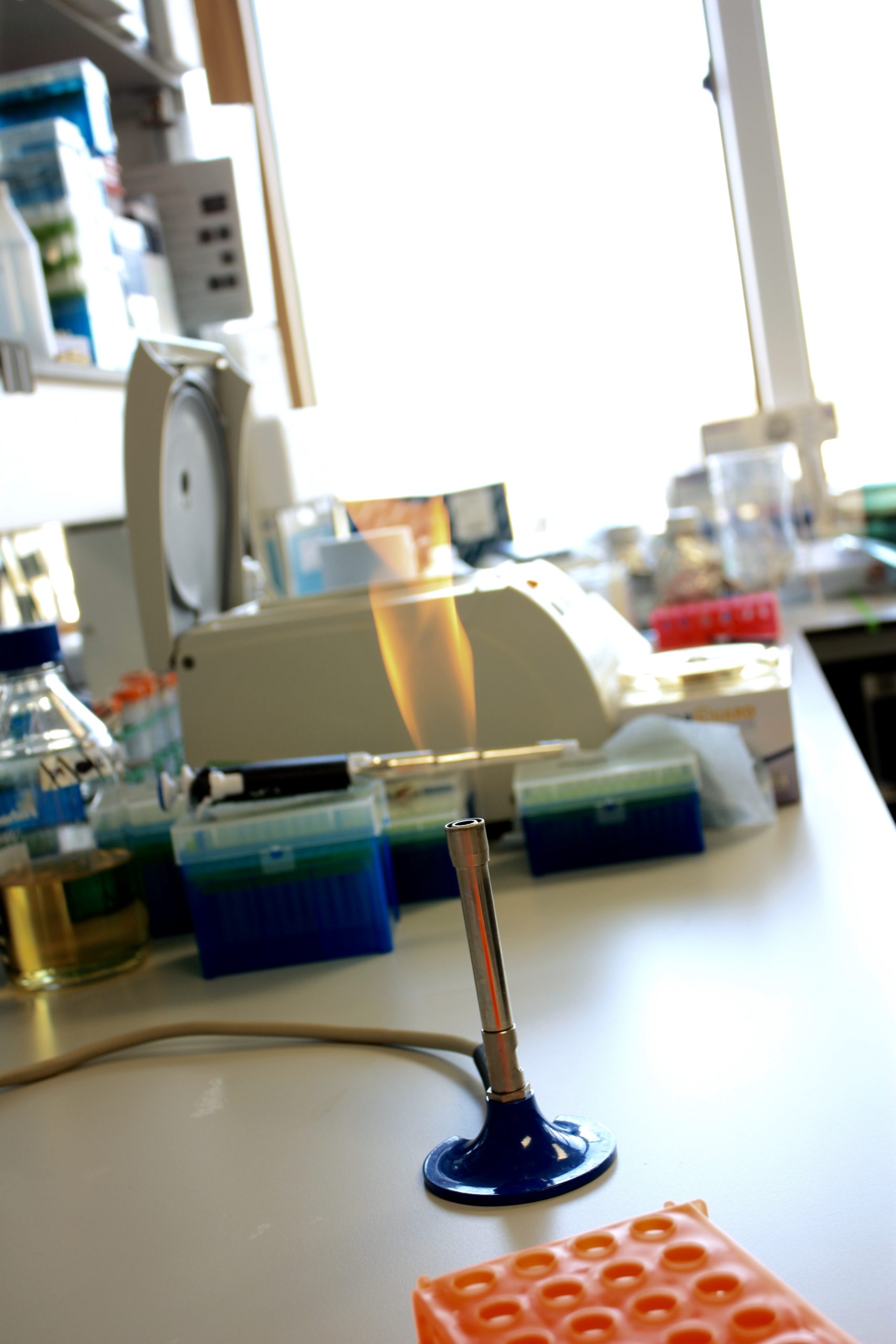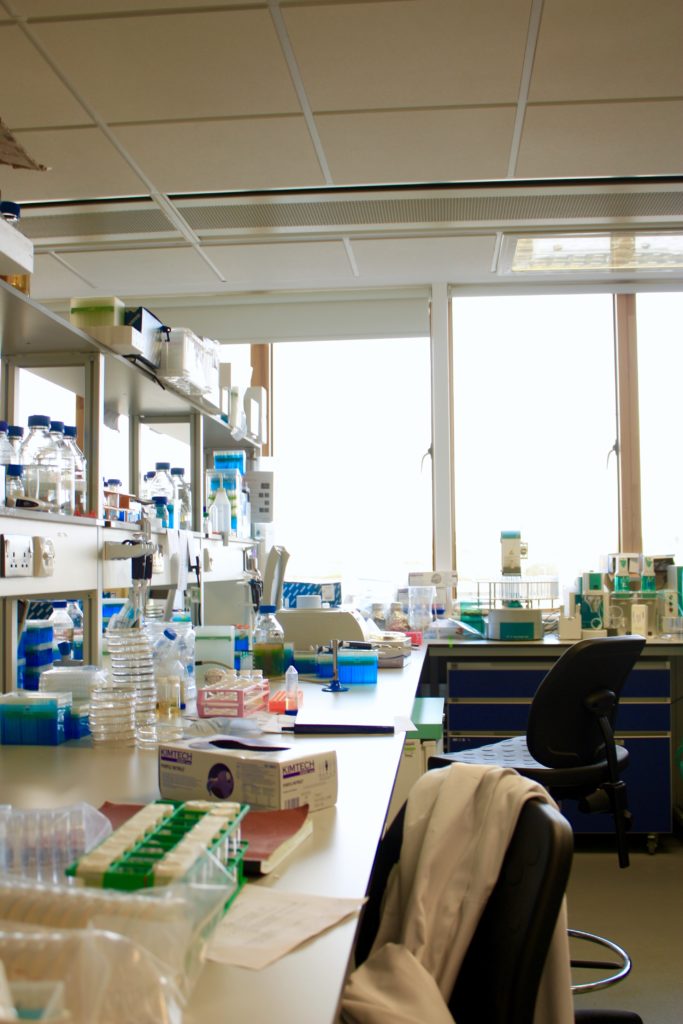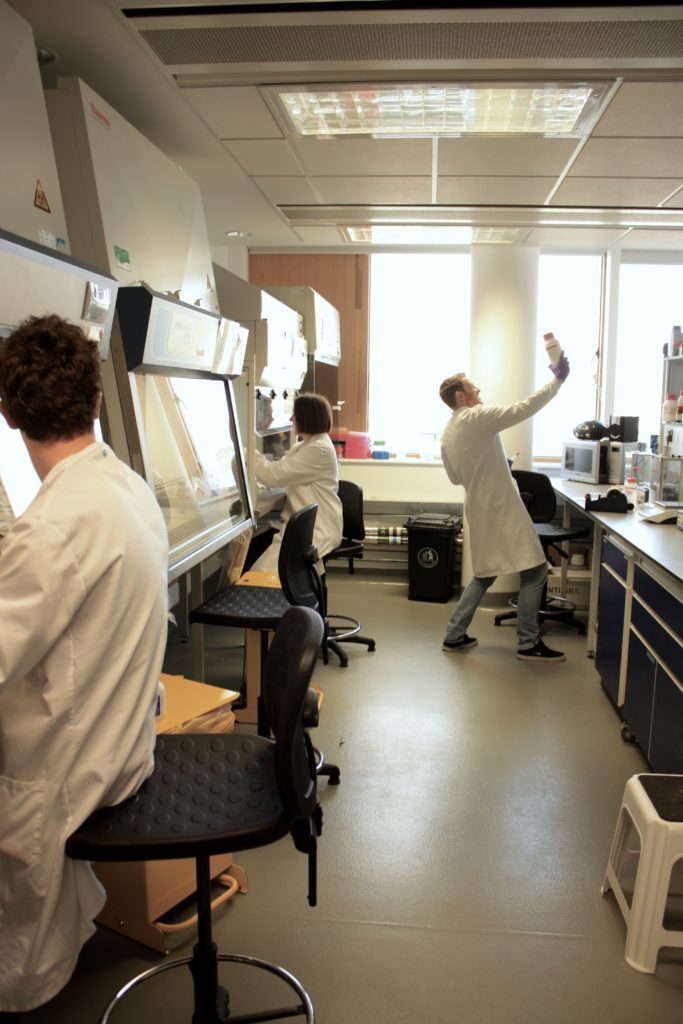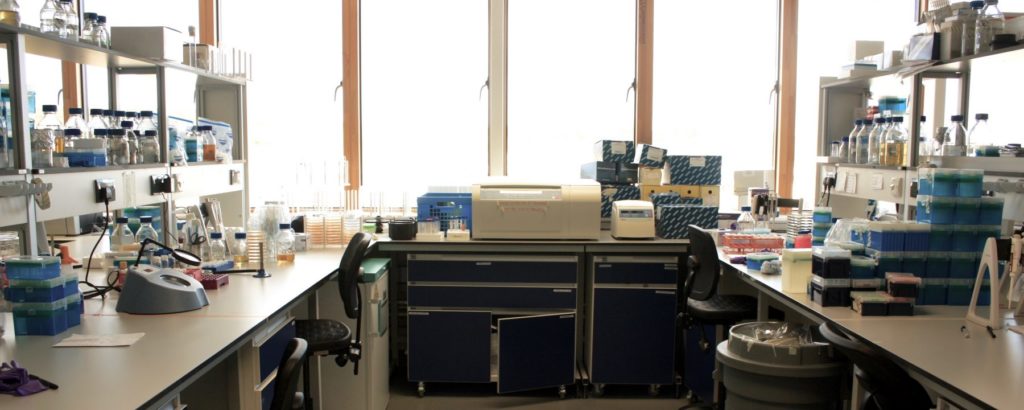Key Publications
Please click here for a full list of publications.
Various plasmid strategies limit the effect of bacterial restriction-modification systems against conjugation. (Dimitriu et al., Nucleic Acids Res. 2024)
- Summary: In bacteria, genes conferring antibiotic resistance are mostly carried on conjugative plasmids, mobile genetic elements that spread horizontally between bacterial hosts. Bacteria carry defence systems that defend them against genetic parasites, but how effective these are against plasmid conjugation is poorly understood. Here, we study to what extent restriction-modification (RM) systems-by far the most prevalent bacterial defence systems-act as a barrier against plasmids. Overall, our results show that it is common for plasmids to encode anti-RM strategies, and that, as a consequence, RM systems form only a weak barrier for plasmid transfer by conjugation.
The bacterial defense system MADS interacts with CRISPR-Cas to limit phage infection and escape. (Maestri et al., Cell Host Microbe 2024)
- Summary: The constant arms race between bacteria and their parasites has resulted in a large diversity of bacterial defenses, with many bacteria carrying multiple systems. Here, we report the discovery of a phylogenetically widespread defense system, coined methylation-associated defense system (MADS), which is distributed across gram-positive and gram-negative bacteria. MADS interacts with a CRISPR-Cas system in its native host to provide robust and durable resistance against phages. While phages can acquire epigenetic-mediated resistance against MADS, co-existence of MADS and a CRISPR-Cas system limits escape emergence. MADS comprises eight genes with predicted nuclease, ATPase, kinase, and methyltransferase domains, most of which are essential for either self/non-self discrimination, DNA restriction, or both. The complex genetic architecture of MADS and MADS-like systems, relative to other prokaryotic defenses, points toward highly elaborate mechanisms of sensing infections, defense activation, and/or interference.
The impact of phage and phage resistance on microbial community dynamics. (Alseth et al., PLoS Biology 2024)
- Summary: We conducted a 10-day, fully factorial evolution experiment to examine how phage impact the structure and dynamics of an artificial four-species bacterial community. We used mathematical modelling to explore the ecological interactions underlying full community behaviour, as well as to identify general principles governing the impacts of phage on community dynamics. Combined, our data clearly illustrate how phage targeting a dominant species allows for the competitive release of the strongest competitor while also contributing to community diversity maintenance and potentially preventing the reinvasion of the target species, and underline the importance of mapping community composition before therapeutically applying phage.
Transient eco-evolutionary dynamics early in a phage epidemic have strong and lasting impact on the long-term evolution of bacterial defences. (Watson et al., PLoS Biology 2023)
- Summary: Organisms have evolved a range of constitutive (always active) and inducible (elicited by parasites) defence mechanisms, but we have limited understanding of what drives the evolution of these orthogonal defence strategies. Bacteria and their phages offer a tractable system to study this: Bacteria can acquire constitutive resistance by mutation of the phage receptor (surface mutation, sm) or induced resistance through their CRISPR-Cas adaptive immune system. Using a combination of theory and experiments, we demonstrate that the mechanism that establishes first has a strong advantage because it weakens selection for the alternative resistance mechanism. This work highlights the strong and lasting impact of the transient evolutionary dynamics during the early stages of an epidemic on the long-term evolution of constitutive and induced defences, which may be leveraged to manipulate phage resistance evolution in clinical and applied settings.
Bacteriostatic antibiotics promote CRISPR-Cas adaptive immunity by enabling increased spacer acquisition. (Dimitriu et al., Cell Host Microbe 2022)
- Summary: Bacteria often evolve resistance by mutation of phage receptors, even if they carry CRISPR-Cas systems. We demonstrate that this is because phages often outpace CRISPR-Cas: phage take over the cell within minutes, which is too fast to complete all stages of the CRISPR-Cas immune response. We demonstrate that exposure to bacteriostatic antibiotics, which slows down bacterial growth and phage development, promotes acquisition of CRISPR immunity by providing more time for cells to mount an immune response. Hence, the speed of phage development is a key determinant for CRISPR immunity acquisition. Moreover, phage-antibiotics combination therapy can accelerate resistance evolution in the clinic.
Regulation of prophage induction and lysogenization by phage communication systems. (Bruce et al., Current Biology 2021)
- Summary: Bacteriophage need to carefully control the switch between lytic and lysogenic replication. We discovered that some bacteriophage use molecular signaling to control their reactivation: they produce a signal that is secreted and degraded by bacteria in a density-dependent manner. Declining signal concentrations therefore indicate the presence of uninfected hosts, which is detected by a phage-encoded signal receptor and triggers prophage reactivation. This may be leveraged to manipulate infection dynamics in natural environments.
Targeting of temperate phages drives loss of type I CRISPR-Cas immune systems. (Rollie et al., Nature 2020)
- Summary: Many phages can switch between lytic replication (lysing bacteria to release new phage particles) and lysogenic replication (integrating into the bacterial genome). Here, we report that this switch often causes CRISPR-Cas immune systems to misfire, leading to self-targeting (autoimmunity) and reactivation of the lysogenic phage, killing the bacteria. This conflict is resolved through evolutionary loss of the immune system.
- Summary: We discovered that the pathogen Pseudomonas aeruginosa evolves higher levels of CRISPR-based immunity against phage when it competes with other pathogens, because alternative phage resistance strategies through receptor mutation become costlier in this context. Crucially, this has knock-on effects for P. aeruginosa virulence: in vivo experiments revealed that CRISPR immune bacteria are more virulent than bacteria with mutated phage receptors.
Anti-CRISPR phages cooperate to overcome CRISPR-Cas immunity. (Landsberger et al., Cell 2018)
- Summary: Some phages encode anti-CRISPR (acr) genes, which block bacterial CRISPR-Cas immune systems. In this study, we demonstrate that phages with acr genes need to work together to overcome the CRISPR immune system of the host: a first phage takes down the immune system so that a second phage can replicate in this host. This study provided a first example of viral teamwork.
The diversity-generating benefits of a prokaryotic adaptive immune system. (van Houte et al., Nature 2016)
- Summary: CRISPR-Cas immune systems rely on capturing “memory sequences” from bacteriophage genomes, which enables sequence-specific detection of future infections. However, bacteriophage can rapidly evolve to overcome CRISPR immunity by mutating the recognition sequences. We demonstrated that bacteria naturally evolve high diversity in CRISPR memory sequences at the population level, which prevents phage evolution and causes rapid phage extinction. This work challenged the prevailing model for CRISPR-phage coevolution, and provided unambiguous evidence for a “biodiversity-disease” relationship – a hotly debated topic in disease ecology.



